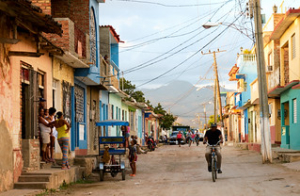Listen to the Poor

In 2010, Armando Barrientos had a plan: just give direct money and resources to the poor, no need for the expensive aid industry. The argument made calls for community involvement, by directly transferring money to the poor. In this way, the recipients have a chance to decide what to do with that money. According to Barrientos’ argument in the Guardian, this model is being implemented in several countries including Mexico, Brazil, South Africa, and India. These countries provide “regular transfers of money to households in poverty with the aim of improving their nutrition, making sure children go to school and ensuring expectant mothers have regular check-ups.” Nevertheless, these same social transfer programs are difficult to set up without the help of the international community.
This year, the aim is a little higher; The Guardian posted an article discussing these social transfer programs in a broader light. The goal is to know how the poor and affected communities feel about these programs, if the programs actually help or detract the communities, and how the recipients can make better use of these money transfers. Recently, governments and aid donors have been more interested in involving the recipient communities in the decision-making, monitoring, and evaluating of “social protection programs.” Although the very concept of money transfers has generated positive results and is appreciated in several countries including Palestine, Mozambique, Yemen, and Uganda, monetary transactions are not sufficient enough in order to meet people’s basic needs.
Additionally, the access to cash transfers is confusing and alienating as the extremely poor either: do not know how to become eligible for funds, how to apply to receive funds, or are stuck on waiting lists for too long. Cash transfer recipients are reluctant to complain about such conditions regarding long waiting and the insufficiency of cash because the recipients are afraid to be regarded as “troublemakers,” which may cost them their access to funds altogether.
It is more efficient and effective to include the recipients in the decision-making process since the money directly affects them and their communities. It is also ethical, “people have a right to a say over what affects them.” The poor need a voice that will be listened to in order to improve social protection and cash transfer programs, making aid more effective, fair, and beneficial to the global community.
– Leen Abdallah
Source: Guardian
